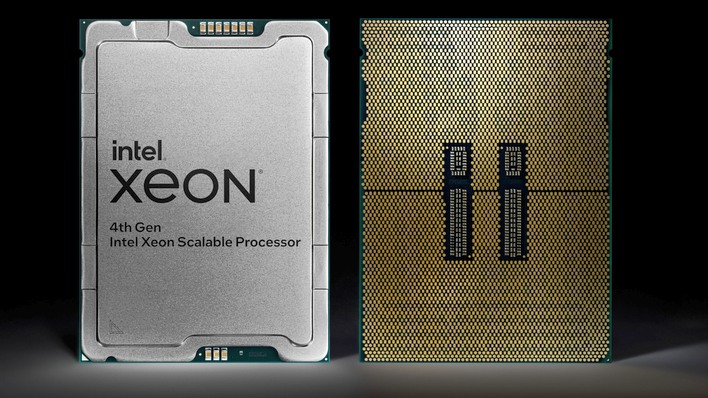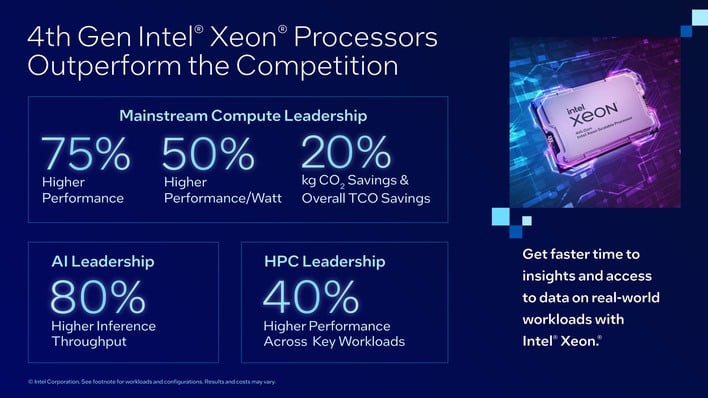Intel Claims AI And Real-World Cloud Domination With 4th Gen Scalable Xeon CPU Benchmarks

That's basically the gist of a blog post put up by Intel today, titled "4th Gen Intel Xeon Outperforms competition on Real-World Workloads." In short, Intel's benchmark labs have done "intensive head-to-head testing" against competitor AMD's offerings, and come away with the conclusion that its latest server processors offer superior performance while also being cheaper to run.
That's not because they use less power per server—Intel's data admits that Sapphire Rapids is thirsty. It's doing work with all that power, though, because according to Intel's numbers, you can achieve the same or better performance (in comparison to EPYC Genoa) with half the number of servers or even less. That means reduced initial layout as well as reduced operating costs, and ultimately, a smaller carbon footprint (for those who care about that kind of thing).
Intel's infographic here—and we use that term loosely, given at it's basically just a page full of text—claims 40% higher performance in HPC workloads, 75% higher performance in "mainstream compute," and 80% higher throughput in AI tasks. Those claims are based on benchmarks for which Intel doesn't actually provide the results, only relative comparisons.
For example, Intel says that in HPC it's 40% faster than AMD overall, but that's a geometric mean of five results from the HPCG, NEMO-GYRE, Anelastic Wave Propagation, BlackScholes, and OpenFOAM benchmarks. Who knows what the actual results were of any particular benchmark. Likewise, for AI, Intel seems to be basing its "80% higher throughput" claim on a single test using Meta's DLRM recommendation model. That test supports AMX extensions, so it's no surprise that the Intel machines dominate in this benchmark.
It's hardly fair to fault a company for presenting its products in the best possible light, but for all the hardware and configuration information presented in the article footnotes, we wish Intel had been a little more transparent with the actual test data. Of course, the best thing to do would be to test these systems ourselves, so head over to our Xeon Scalable Sapphire Rapids review to check out our own comparisons against AMD's EPYC Genoa processors.


